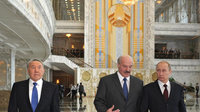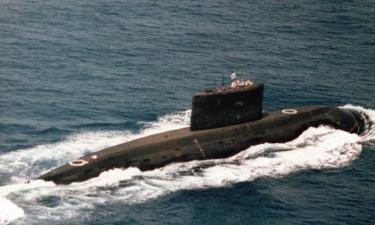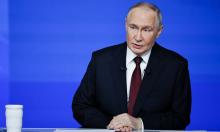Russia, Belarus and Kazakhstan create Eurasian Economic Union
The treaty establishing the Eurasian Economic Union was signed on May 29th, in Astana, the capital of Kazakhstan. The document was signed following the meeting of the Supreme Eurasian Economic Council. Russian President Putin had previously announced the establishment of the Union as the "central event of the year." The document was signed by the leaders of three countries participating in the new union - Russia, Belarus and Kazakhstan, ITAR-TASS reports.

Vladimir Putin, Alexander Lukashenko and Nursultan Nazarbayev at first discussed a number of topical issues related to the development of the Customs Union and Joint Economic Space. Then, an extended meeting was held with the participation of the heads of observer states - Armenian President Serzh Sargsyan and President of Kyrgyzstan Almazbek Atambayev. During the meeting, Nazarbayev proposed to regulate Armenia's accession to the Union within the state borders as enshrined in the UN, not to bother Azerbaijan.
Presidential aide Yury Ushakov said that the EEU Treaty consists of two parts. The first one outlines the goals and objectives of the Eurasian integration and establishes the status of the EEU as a full-fledged international organization. The second part is functional - it regulates the mechanisms of economic cooperation.
The signed agreement reflected the basic issues inherent to international organizations. The agreement enshrines the principles of sovereign equality, territorial integrity, and respect for political features of the political structure of member-states of the Union. During the talks, the sides will discuss the issue of expansion of the Eurasian integration process.
The discussion of the text of the treaty did not go smoothly. For example, Kazakhstan strongly objected to the inclusion of non-economic issues of cooperation in the document. However, the sides managed to overcome all difficulties before signing the treaty.
This week, Deputy Foreign Minister of Kazakhstan Samat Ordabaev said that through the insistence of his country, such non-economic issues as common citizenship, foreign policy, inter-parliamentary cooperation, passport and visa issues, joint border protection and export controls were excluded from the Treaty.
Speaking at a meeting Supreme Council of the Eurasian Economic Union, Vladimir Putin said Thursday that the Eurasian Economic Union would work on the basis of universal rules understandable for all, including the rules and principles adopted by the World Trade Organization (WTO).
According to Putin, due to the constructive spirit, willingness and ability of each side to compromise, the sides were able to overcome a lot of difficulties along the way. Putin noted that the document would take the countries to a new level of integration: while maintaining state sovereignty, it ensures closer and coherent economic cooperation.
Putin also stressed out that the member states of the Union form a "powerful, attractive center of economic development, a largest regional market that unites more than 170 million people - one-fifth of world's gas reserves and almost 15 percent of oil reserves. In addition, the three members of the Union have a developed industrial base, as well as a powerful human, intellectual and cultural potential, he added.
Belarusian President Alexander Lukashenko stated at the meeting in Astana that he was still dissatisfied with the draft treaty of the Eurasian Economic Union, but he did not refuse to sign it. He rejected the claims of Minsk's efforts to bargain for concessions in the process of the signing of the document. In turn, Kazakh leader Nursultan Nazarbayev said before signing the treaty that the document marked a new stage in the development of integration. It will be a "balanced document that will take into account the interests of all our countries," he said. "Every integration introduces something that is interesting for all, and this contribution does not have to be measured only by tons, cubic meters or barrels," he said.
The new Treaty will come into force on the territory of the members of the Customs Union on 1 January 2015. The idea of the Eurasian economic integration was set forth by Kazakh President Nursultan Nazarbayev in 1994. The creation of the Customs Union and then Joint Economic Space became preliminary stages of the implementation of the project.
The work on the treaty was launched in November 2011 at the first summit of the Supreme Eurasian Economic Council, when the presidents of Russia, Belarus and Kazakhstan adopted a declaration on the Eurasian economic integration, which became a "road map" for the development of integration cooperation. The document is based on the legal base of the Customs Union and Joint Economic Space, the existing rules of which were brought into conformity with WTO rules.
Three states that will become the members of the Union will take on commitments to guarantee the free movement of goods, services, capital and labor, implementation of coordinated policies in key sectors of energy, industry, agriculture and transport.
The headquarters of the Eurasian Commission will be located in Moscow, the court of the EEU will be headquartered in Minsk and the financial regulator - in Alma-Ata.
Pravda.Ru
Subscribe to Pravda.Ru Telegram channel, Facebook, RSS!




